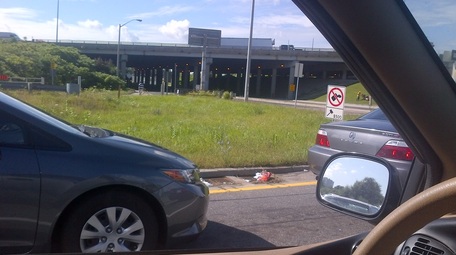Jim Watson, who ushered in an interesting bin experiment on central Elgin Street this year, expresses fatigue over the sight of litter and poor recycling habits. (The two are interlinked.) In his speech he called on compatriots to improve their recycling practices and pledged more bins and innovation to reduce the rate of littering.
Watson, in my view, proves that no mayor who litters should be mayor. Real leadership starts with who we are at the core. A person with littering at his core travels an anti-social path of behaviours that could escalate, according to experts who study anti-social crimes and make a link between littering and other forms of deviance.
Two high profile cases of late – one being Mr. Ford’s, and the other, the metamorphosis of Justin Bieber, who has grown from spewing his spit mucous over an upscale Toronto hotel balcony earlier this year to egging houses, public street racing and impairment in the past few months.
For Ford, on the other hand, his “gateway crime” of littering is an indicator of his love of underbelly associations with fellow crack cocaine users and dealers and his unyielding passion for alcoholic beverages, including whilst driving.
If you litter your city, you can’t be the face for clean-ups. You don’t belong in the staged photo-ops, where you put down your work gloves as soon as the cameras leave. You can’t speak intelligently about littering because, clearly, you don’t get it if you are wanton with your discarded waste. You can’t be trusted as a lawmaker.
Littering is the lowest rung on a long ladder of criminality. Ottawa’s Jim Watson understands this and will focus his attention on it, he says. By contrast, Ford stumbles along blindly, carelessly littering beautiful Toronto as he goes, stupefied.



 RSS Feed
RSS Feed